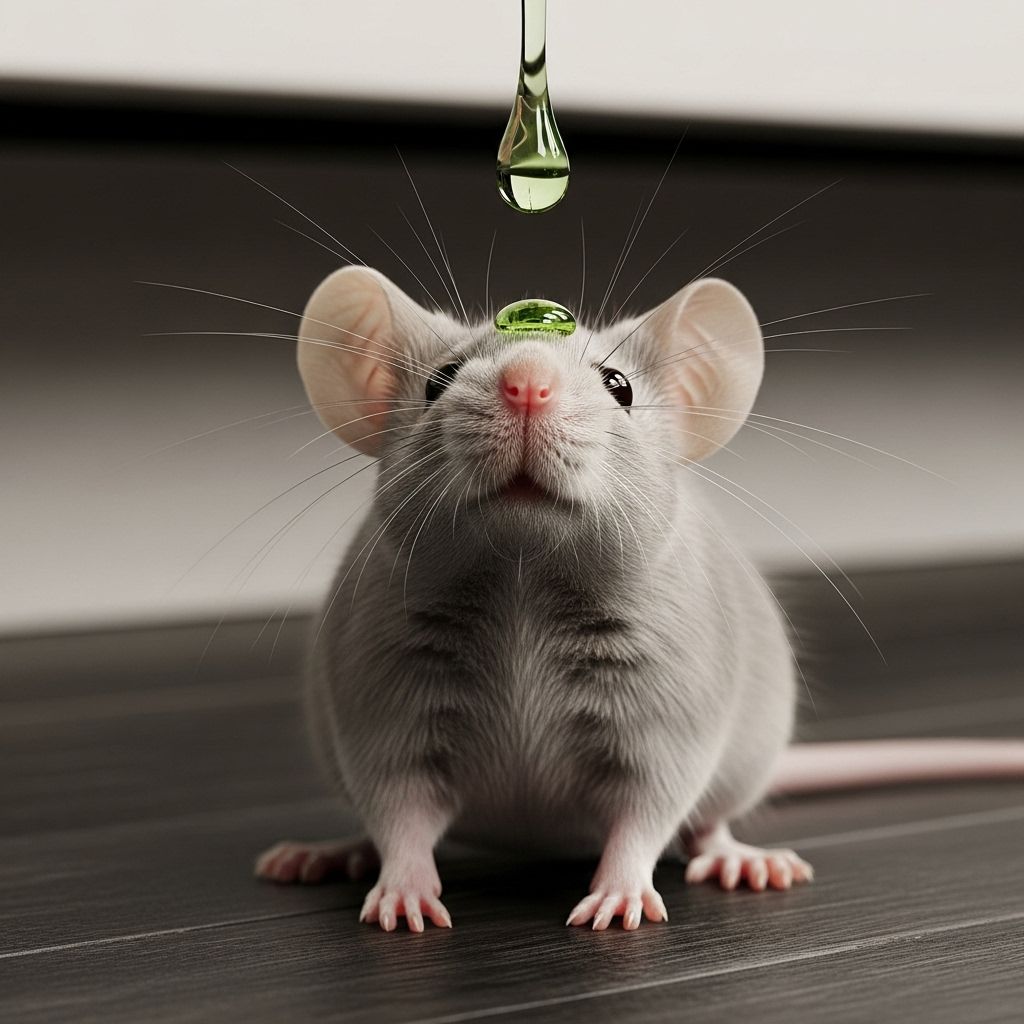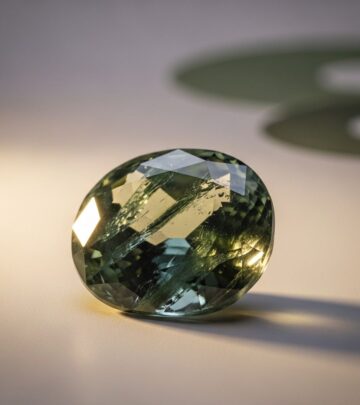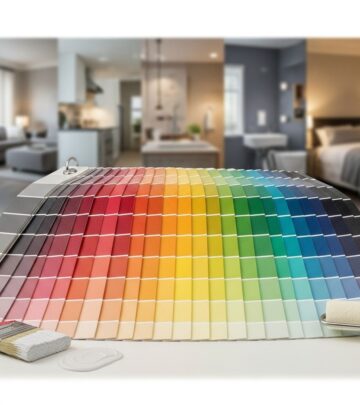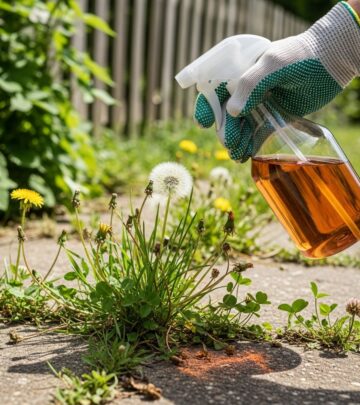Peppermint Oil For Mice: 5-Step Guide To Deter Rodents
Discover natural ways to repel rodents effectively with safe and simple essential oil tricks.

Image: HearthJunction Design Team
Does Peppermint Oil Control Mice? Here’s How to Use It Right
Peppermint oil is a popular and natural choice for those searching for ways to keep mice out of their homes. But does it really work, and how effective is it as a stand-alone solution? This comprehensive guide dives into the science, practical application, benefits, and limitations of using peppermint oil for mouse control, drawing on expert tips and real-world experience.
Can Peppermint Oil Reliably Scare Mice Away?
While peppermint oil has been used for years as a natural remedy to deter mice, its effectiveness as a standalone solution is not guaranteed. Most evidence is anecdotal, and results can vary widely. Using only peppermint oil may not reliably or effectively keep mice away—instead, it can sometimes just force them to move to a different area of your home.
For best results, peppermint oil should be used as part of a multi-step pest control plan that addresses entry points, sanitation, and maybe even traps.
Why Mice Might Dislike Peppermint Oil
Mice have a strong sense of smell, which they use to find food and avoid danger. The strong, fresh scent of peppermint oil can overwhelm their sensitive nasal passages, creating an unpleasant experience that encourages them to stay away from treated areas. However, the effect is often temporary, and mice may return or move elsewhere in the home.
How to Use Peppermint Oil to Control Mice
What You’ll Need
- PPE: Long sleeves, pants, boots, work gloves, hat, and eye protection
- Tools: Flashlight/headlamp, inspection mirror, ladder, drill, tin-snips, yard tools for cleanup, spray bottle
- Materials: Disposable gloves (ideally nitrile), screws (self-drilling), hardware cloth, metal flashing, exterior caulk and caulk gun, coarse steel wool, escutcheon plates, mouse traps, peppermint essential oil, distilled white vinegar
Step-by-Step Process
- Inspect and Seal Entry Points: Use a flashlight and inspection mirror to find cracks, holes, and gaps where mice might enter. Seal these areas with hardware cloth, metal flashing, and caulk.
- Clean and Sanitize: Remove food sources and clean up clutter. This reduces the attraction for mice.
- Apply Peppermint Oil: Soak cotton balls in peppermint essential oil and place them near entry points, in corners, and other areas mice frequent. Alternatively, mix peppermint oil with water in a spray bottle and apply liberally.
- Refresh Regularly: Reapply or replace oil-soaked cotton balls every few days to maintain the scent’s potency.
- Monitor and Adjust: Keep an eye on mouse activity. If the problem persists, consider adding traps or professional pest control.
How Long Does Peppermint Oil Deter Mice?
There is no scientific proof that peppermint oil provides long-term protection against mice. Its strong scent tends to evaporate quickly, so it needs to be refreshed at least once a week for continuous protection. While some report good results for a few days or weeks, others find that mice grow accustomed to the smell or simply move elsewhere.
Other Smells Mice Hate
Mice are sensitive to several strong odors besides peppermint. Experimenting with the following may help:
- Vinegar: Its strong scent can repel mice and has cleaning benefits.
- Ammonia: Ammonia mimics the scent of predator urine, which can scare mice away.
- Cayenne Pepper: The spicy scent is intolerable to many rodents.
Benefits and Limitations of Peppermint Oil for Mouse Control
| Benefits | Limitations |
|---|---|
| Non-toxic and safe for families and pets | Effects are temporary and may not completely deter mice |
| Easy to use and apply (cotton balls, spray, etc.) | Mice may become accustomed to the smell over time |
| Pleasant aroma compared to harsh chemicals | Strong scent may force mice to other untreated areas |
| Can double as an air freshener | Effectiveness drops in cold environments and quickly fades |
DIY vs. Professional Pest Control
Peppermint oil can be a good starting point for a DIY pest control plan, but it should not be relied upon as the sole solution for a mouse infestation. If your efforts are unsuccessful or if you notice significant damage, calling a professional pest control service is recommended. Professionals have access to more effective tools and can address underlying issues such as insulation damage or large-scale infestations.
When to Call a Professional
Consider contacting a pest control professional if:
- You see signs of a large infestation, such as droppings, gnaw marks, or nesting materials.
- You have tried multiple methods without success.
- There is structural damage from mice, such as chewed wires or insulation.
- You are uncomfortable handling pest control tasks yourself.
Tips for Using Peppermint Oil Safely and Effectively
- Use 100% Pure Peppermint Essential Oil: Diluted or low-quality oils may not be as effective.
- Apply in High-Risk Areas: Focus on entry points, dark corners, and areas with recent mouse activity.
- Reapply Consistently: Replace oil-soaked cotton balls or re-spray every 3-7 days.
- Combine with Other Methods: Use traps, sanitation, and sealing for comprehensive results.
FAQs About Peppermint Oil and Mice
Q: Does peppermint oil actually keep mice away?
It may help deter mice in the short term, but it is not a guaranteed or permanent solution. Results vary from home to home.
Q: How often should I refresh peppermint oil for mice control?
Peppermint oil evaporates quickly, so you should refresh applications at least once a week for best results.
Q: Is peppermint oil safe for pets and children?
When used properly, pure peppermint oil is safe for most homes. However, it can be toxic to cats in large amounts, so use caution and place cotton balls out of reach.
Q: Will peppermint oil alone solve a mouse problem?
Unlikely. Peppermint oil works best as part of a multi-step approach, which includes sealing entry points, sanitation, and possibly traps or professional assistance.
Q: What smells do mice hate besides peppermint?
Mice also dislike the smells of vinegar, ammonia, cayenne pepper, and other strong, pungent odors.
References
- https://www.thespruce.com/peppermint-oil-for-mice-7373740
- https://www.nativepestmanagement.com/blog/2024/august/is-peppermint-oil-an-effective-mouse-repellent-/
- https://www.orkin.com/ask-orkin/peppermint-oil-pest-control
- https://www.youtube.com/watch?v=wNaNGH_hnEE
- https://www.earthkind.com/blog/peppermint-oil-rid-mice/
Read full bio of Shinta










